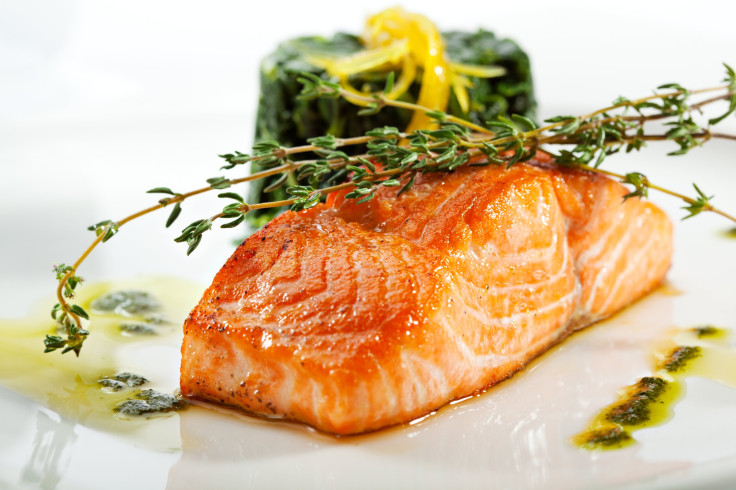Vitamin D Could Prevent Breast Cancer Tumor Growth, Increasing Chance Of Survival

Salmon, Swiss Cheese, and sunny days have one thing in common: Vitamin D — the chemical compound that University of California researchers say can double a breast cancer patient’s survival rate when present in high levels. In a study published Friday, the researchers found women who had high levels of Vitamin D in their blood were twice as likely to live compared to women with lower levels of the chemical. The study combines the data of 4,443 patients and supports a long-hypothesized link between Vitamin D and its positive influence on reducing cancer risk.
In a press release, study co-author Dr. Cedric F. Garland recommends doctors should supplement their patient’s conventional therapies with vitamin D now — and not to wait for more trials to confirm the findings. Vitamin D is most commonly found in the flesh of fatty fish like salmon and mackerel, in fish liver oils, in mushrooms, in milk sold in the U.S., in orange juice and of course, in supplement form.
“There is no compelling reason to wait for further studies to incorporate vitamin D supplements into standard care regimens,” says Garland, referencing the fact that his study establishes a safe dose of vitamin D to achieve “high serum levels above 30 nanograms per milliliter.”
Garland and his team honed in on one particular metabolite that the body produces when a person takes vitamin D: 25-hydroxyvitamin D. They measured its levels in the blood of breast cancer patients and found that the women who had 30 nanograms per milliliter or higher in their blood of 25-hydroxyvitamin D had double the chance of survival than those who had only 17 nanograms per milliliter.
To put that into perspective, patients who consumed 4,000 IUs (international units) of vitamin D had about 50 nanograms per milliliter. The NIH recommends the general population to take 600 IU daily, and 800 for adults over 70. That extra boost of vitamin D appears to have elongated the breast cancer patient’s survival.
Why Vitamin D?
The metabolite, 25-hydroxyvitamin D has a special ability to “switch on” a protein that prevents tumor growth. Breast cancer is essentially a tumor — a clump of cancerous cells that grow in the breast — and spreads, sometimes throughout the body. When present in high levels, vitamin D blocks cells from dividing, and the tumor from expanding.
The link between vitamin D and reduced cancer risk was previously unclear, with the National Cancer Institute (NCI) neither recommending nor discouraging the use of supplements for cancer therapy. Studying vitamin D was previously challenging because researchers could only measure it through tracking a person’s diet or their exposure to sunlight. In the case of food, researchers couldn’t know for sure if the positive impact was a result of the vitamin D, or of other sources wrapped up in the food, like calcium. Garland had the idea to measure 25-hydroxyvitamin D after his 2011 study found that low levels of vitamin D were correlated with an increased risk of premenopausal breast cancer. His new study, which supports the previous one, may change the NCI recommendations for vitamin D supplements, though Garland himself says trials must be completed to replicate the findings. Patients should check with their healthcare provider first before increasing their intake of vitamin D.
Source: Mohr S, Gorham E, Kim J, Hofflich H, Garland C. Meta-analysis of Vitamin D Sufficiency for Improving Survival of Patients with Breast Cancer. Anticancer Research. March 2014.



























